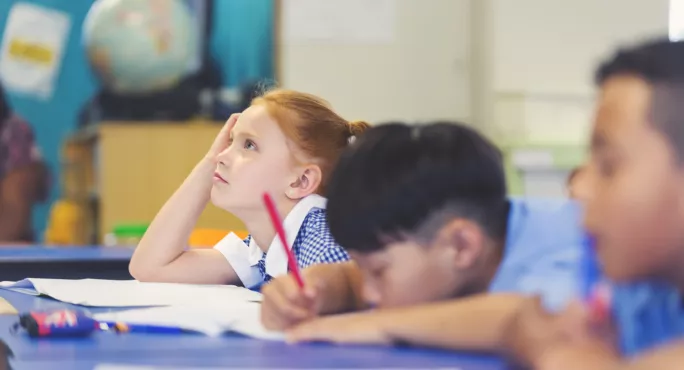Pupils in economically deprived areas have suffered twice as much learning loss during the pandemic as their more advantaged peers, and children in the Midlands and the North have been hardest hit, according to a new report.
Overall, primary pupils in England are around a month behind in reading and maths, and two months behind in grammar, punctuation and spelling (GPS), finds the report, based on on data from 250,000 primary school pupils.
But schools in locations that the government considers to have “high economic deprivation”, saw average assessment scores for pupils fall at approximately double the rate of others.
The report is based on assessments carried out in autumn 2019, summer or September 2020, and late autumn 2020.
Children eligible for the pupil premium are now six months behind their peers on average, while younger pupils have generally been impacted more than older age groups, according to the report by RS Assessments, which provides assessments to more than 6,000 schools.
Cost of Covid: Teachers’ grim figures on learning loss
Exclusive: Tests reveal ‘dramatic’ GCSE learning loss
Boris Johnson: Schools to get further £300m for catch-up tutoring
However, the furthest lag between disadvantaged pupils and their classmates was in Year 6 maths, where they are, on average, seven months behind in their learning.
Simon Burgess, professor of economics at the University of Bristol, said the data was “vital” to understand the scale of learning loss as the government considers strategies to help young people recover.
He said: “The results confirm fears that most pupils have experienced significant learning losses and that these losses are unequally distributed.
“For example, the learning gap in maths between disadvantaged and non-disadvantaged pupils grew by about 40 per cent for Year 6 pupils between 2019 and 2020. This type of evidence is very concerning and needs to be at the forefront of discussions around learning catch-up.”
RS Assessment, which provides tests for reading (PiRA), maths (PUMA), and grammar, punctuation and spelling (GAPS), says results in these tests have dropped most steeply for schools in the Midlands and the North, with schools in the Midlands showing the most significant declines in scores.
RS Assessment publishing director Katie Blainey said that overall attainment was “very close to prior years”.
She said: “This highlights the continued hard work of teachers throughout this challenging time.
“However, we are aware that there are increases in educational disparities related to poverty. We hope that our analysis will highlight this and help ensure all children, regardless of background, get a fair education.”
The Department for Education has been contacted for comment.




